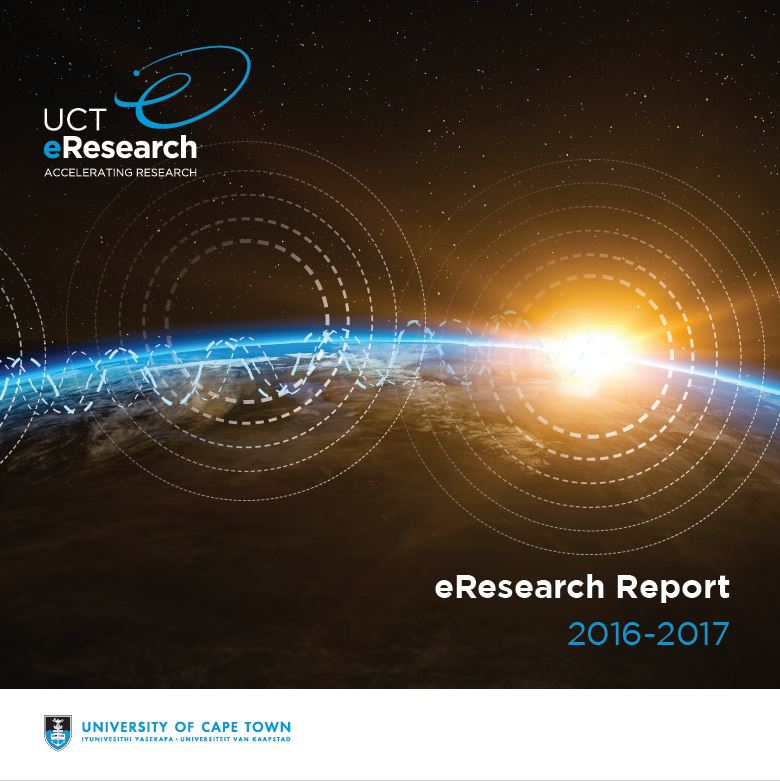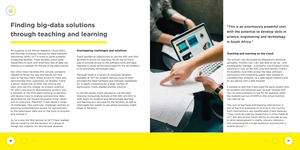eResearch Report 2016-2017 is available
The digital era brings new challenges and opportunities for scientific research, offering new ways of global interaction within disciplines, as well as local collaborations between disciplines. Exponential increases in bandwidth, computational resources and storage have improved channels for sharing findings among researchers, and between researchers and society, thanks to new forms of dissemination and access to information.

This year, our UCT eResearch report highlights the ways we are providing researchers with access to the tools they need to stay globally competitive: cutting-edge facilities, infrastructure and support for their research-data needs. To do this during times of resource restrictions – which we and all South African universities are currently facing – we need to pool our efforts. It's stories of such collaboration that you will find in these pages.
Below are some of the features in the report. Enjoy.

Cloud computing offers solutions for research, as well as for teaching and learning. As a tool for teaching and learning, the cloud presents a range of opportunities, including potential application in developing skills in science, engineering and technology across the country.

Preparing for the SKA data
The world is wholly underprepared for the unprecedented volumes of the data that will be generated by the Square Kilometre Array – the largest radio telescope ever built. Two members of UCT eResearch are helping to address the challenges of delivering and visualising these data.

Mapping pixels
Drones are a powerful tool for collecting data. But the amount of data they generate can test the capacity of even a high-end desktop computer. UCT eResearch was able to help when a researcher at the Department of Biological
